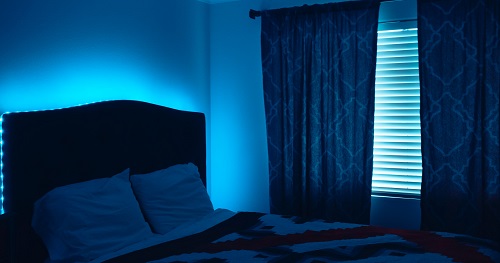5 Ways That Blue Light Is Bad For You & 1 Way Its Good

Blue light is one of those things that we never would have known was an issue if it hadn’t been for the rapid and widespread implementation of digital technology. As it is, we know that blue light is categorically bad for you in a number of ways and because of this, you should attempt to limit your exposure. To help you understand exactly why this is necessary, this article highlights a number of ways that blue light is bad for you as well as one way you can use it to help yourself.
Table of Contents
1. It Disrupts Your Circadian Rhythm
The first and foremost reason why blue light is bad for you is that it messes with your circadian rhythm, which is essentially your body’s internal clock and how it can tell when you need to sleep. Unfortunately, when you are exposed to blue light near to when you want to be going to sleep, your body will either not produce, or not produce enough of, the necessary melatonin that your body needs to wind down and get ready to sleep. This lack of sleep has a whole host of negative effects.
2. It Is Harmful to Your Eyes
In addition to the effects it has on your sleep, extended exposure has been linked to several issues with your eyes including increased eye strain, blurred vision, irritated eyes, and an increased risk of eye disease. This can lead to problems with your vision that might only be repairable through a service such as Baton Rouge LASIK surgery, which is far from ideal.
3. It Has Been Linked to the Development of Cancer
On top of all this, increased blue light levels during nighttime have even been linked to the development of cancer, although there is very minimal risk of this for most people. It is still a terrible thing to think that blue light could be connected to such a terrible condition.
4. It Can Be Detrimental to Your Mental Health
Finally, extended nighttime exposure to blue light has been found to be connected to depressive symptoms, not to mention the plethora of mental health issues that would result from the heavy disruption of your circadian rhythm and the resultant loss of sleep. In fact, some of the worst effects of light exposure are the result of this lack of sleep and almost every one of these are mental health issues. From reduced cognitive function to increased levels of depression and anxiety, nighttime exposure is detrimental to your mental health. This issue affects swathes of the working population as many people work jobs, such as night-shift customer service manager, that exposes them to blue light over lengthy periods.
5. It Can Be Beneficial to Your Mental Health
However, the opposite is true for daytime exposure. In fact, blue light can be used to treat Seasonal Affective Disorder, which is more commonly known simply as seasonal depression. Neat.
